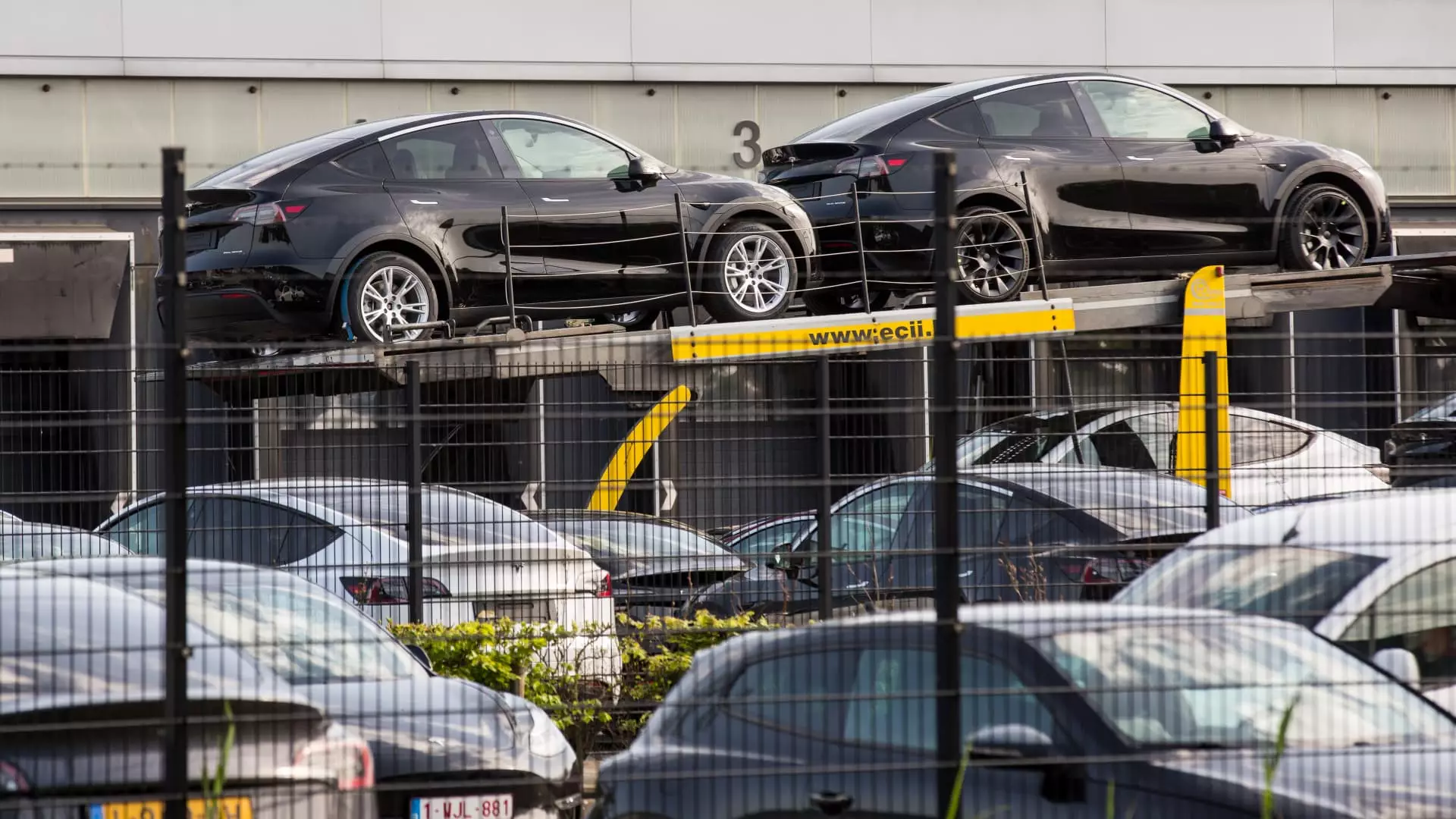Tesla’s shares saw a significant jump after the company released its second-quarter vehicle production and delivery numbers, surpassing analyst expectations. In Q2 of 2024, Tesla delivered a total of 443,956 vehicles and produced 410,831 vehicles. These numbers exceeded the anticipated 439,000 deliveries, leading to a 4.8% decrease from the previous year but a 14.8% increase from the first quarter. As a result, the stock surged by over 9% in midday trading.
Despite the positive quarterly results, Tesla has been grappling with various challenges that have impacted its sales performance. In the first quarter of 2024, the company reported an 8.5% decline in deliveries, marking its first annual decrease since 2020. Several factors contributed to this decline, including factory shutdowns due to an alleged arson attack in Germany, shipping delays, and increased competition from other electric vehicle manufacturers, particularly in China.
Tesla’s sales drop has also been attributed to brand erosion, partially linked to CEO Elon Musk’s controversial behavior and political statements. A recent survey pointed out that Musk’s “antics” and “political rants” had a negative impact on the brand’s reputation. Furthermore, the company faced tough competition from other EV makers in the Chinese market, prompting Tesla to offer discounts and incentives to boost sales. In China, for instance, Tesla introduced a zero-interest loan promotion to encourage customers to purchase Model 3 and Model Y vehicles by a certain deadline.
Tesla’s revenue from China accounted for a significant portion of its overall sales, generating about $21.75 billion in 2023, representing 22.5% of total revenue. To counter the decline in sales and increased competition, Tesla has been offering discounts and incentives, which could impact its automotive gross margins. Wells Fargo analysts expect Tesla’s margins to decrease further due to potential price cuts and lower sales volumes as the year progresses.
Overall, Tesla’s recent success in exceeding delivery expectations in the second quarter is a positive sign for the company. However, with increasing competition, brand erosion, and the need to maintain profitability, Tesla will have to navigate these challenges carefully to sustain its growth and market position in the electric vehicle industry.


Leave a Reply